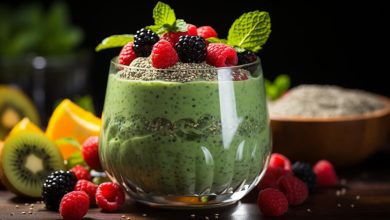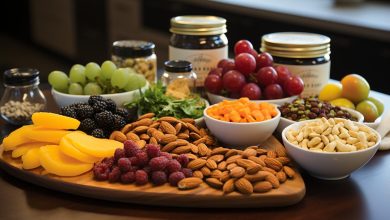Hydration and Nutrition for Effective Post-Run Recovery

Want to optimize your post-run recovery? It’s time to hydrate and nourish your body for faster results.
In this article, we’ll explore the importance of hydration and key nutrients for effective post-run recovery. Discover practical strategies to replenish fluids and fuel your body properly.
Balancing hydration and nutrition is crucial, so we’ll provide tips to help you strike the perfect equilibrium.
Get ready to enhance your recovery routine and maximize your running performance!
The Importance of Hydration for Post-Run Recovery

Make sure you’re drinking enough water after your run to properly hydrate your body for effective post-run recovery. Dehydration risks can be high after a workout, especially if you’ve been sweating heavily. When you exercise, your body loses water through sweat, leading to dehydration. This can cause fatigue, muscle cramps, and even affect your performance in future runs.
To avoid these risks, it’s important to replenish the lost fluids by drinking water. Water is essential for maintaining proper bodily functions and helps transport nutrients throughout the body.
In addition to water, electrolytes play a crucial role in post-run recovery. Electrolytes are minerals that help regulate fluid balance and nerve function in the body. They include sodium, potassium, magnesium, and calcium. These minerals are lost through sweat during exercise and need to be replaced for optimal recovery. Consuming electrolyte-rich drinks or foods can help replenish these essential minerals and prevent electrolyte imbalances.
Transition: Now that we understand the importance of hydration for post-run recovery and the benefits of electrolytes, let’s explore the key nutrients needed for optimal recovery after a run.
Key Nutrients for Optimal Post-Run Recovery

To ensure you’re giving your body what it needs after a run, you’ll want to focus on consuming key nutrients for optimal recovery. Here are some important nutrients and supplements that can help with post-run recovery:
1. Protein: Consuming protein after a run is essential for muscle repair and growth. Aim for around 20-30 grams of high-quality protein, such as lean meat, fish, eggs, or plant-based sources like tofu or beans.
2. Carbohydrates: Replenishing glycogen stores is crucial for restoring energy levels. Include complex carbohydrates like whole grains, fruits, and vegetables in your post-run meal or snack.
3. Omega-3 Fatty Acids: These healthy fats have anti-inflammatory properties that aid in reducing muscle soreness and inflammation. You can find them in fatty fish like salmon or through supplements such as fish oil capsules.
4. Electrolytes: When you sweat during a run, you lose electrolytes like sodium and potassium. Replacing these electrolytes can help restore fluid balance and prevent dehydration. Consider hydrating with sports drinks or eating foods rich in electrolytes like bananas or coconut water.
Remember to also drink plenty of fluids throughout the day to stay properly hydrated. Hydration techniques for endurance athletes should include drinking water before, during, and after your runs to maintain optimal performance and aid in recovery.
Hydration Strategies for Faster Recovery

By incorporating proper hydration strategies, you can expedite your body’s recovery process after a run. Hydration is essential for preventing dehydration and replenishing electrolytes lost through sweat. When you exercise, especially during intense runs or in hot weather, your body loses water and important minerals like sodium, potassium, and magnesium.
To ensure optimal post-run recovery, it is crucial to hydrate before, during, and after your run. Pre-hydration involves drinking water or sports drinks about 2 hours prior to running to ensure that you start off properly hydrated. During your run, aim to drink small amounts of fluids every 15-20 minutes to maintain hydration levels.
After your run, focus on replenishing the fluids and electrolytes lost. A useful strategy is to weigh yourself before and after running; for every pound lost during exercise, drink around 16-24 ounces of fluid. This will help restore hydration balance. In addition to water, consider consuming sports drinks or coconut water which contain electrolytes.
Here is a table outlining some effective hydration strategies:
| Hydration Strategy | Benefits |
|---|---|
| Drink regularly throughout the day | Maintains overall hydration levels |
| Opt for sports drinks during longer runs | Replenishes electrolytes effectively |
| Consume foods with high water content (e.g., fruits) | Provides additional hydration |
Fueling Your Body for Effective Post-Run Recovery

After a run, it’s important to fuel your body with the right nutrients to support optimal recovery. Here are some tips for post-run meal planning and pre-run hydration:
1. Rehydrate: During your run, you lose fluids through sweat, so it’s crucial to replenish them afterward. Drink water or a sports drink containing electrolytes to restore hydration levels.
2. Carbohydrates: Your body needs carbohydrates to replenish glycogen stores in your muscles. Aim for a meal or snack that includes complex carbs like whole grains, fruits, and vegetables.
3. Protein: Including protein in your post-run meal helps repair and rebuild muscle tissue damaged during exercise. Opt for lean sources of protein such as chicken, fish, tofu, or Greek yogurt.
4. Nutrient Timing: Try to eat within 30 minutes to an hour after your run when your muscles are most receptive to nutrient absorption. This will help kickstart the recovery process.
Remember that individual nutritional needs may vary based on factors like distance and intensity of the run, as well as personal goals and preferences. Experiment with different foods and hydration strategies to find what works best for you.
Happy running!
Tips for Balancing Hydration and Nutrition in Post-Run Recovery

Replenishing fluids and consuming nutrient-rich foods is key for optimal recovery after a run. To effectively balance hydration and nutrition, it’s important to focus on two essential factors: electrolyte balance and muscle recovery.
Electrolytes are minerals that help maintain fluid balance in the body. When you sweat during a run, you lose electrolytes such as sodium, potassium, and magnesium. Replacing these electrolytes is crucial for restoring hydration levels and supporting proper muscle function.
To replenish electrolytes, consider consuming sports drinks or coconut water that contain these minerals. Additionally, adding a pinch of salt to your post-run meal can also be beneficial. Aim to consume enough fluids throughout the day to stay properly hydrated.
Muscle recovery is another vital aspect of post-run nutrition. Consuming protein-rich foods helps repair damaged muscle fibers and promotes growth. Lean meats like chicken or turkey, eggs, Greek yogurt, or plant-based proteins like tofu or lentils are excellent choices.
Carbohydrates are also important in replenishing glycogen stores in your muscles. Opt for complex carbohydrates like whole grains, fruits, vegetables, or legumes for sustained energy release.
Conclusion
So, now you know the importance of hydration and nutrition for effective post-run recovery. By replenishing your body with the right amount of fluids and nutrients, you can speed up your recovery time and prevent muscle soreness.
Remember to drink plenty of water, electrolyte-rich beverages, and eat a balanced meal that includes carbohydrates, protein, and healthy fats. Don’t forget to listen to your body’s signals and adjust your intake accordingly.
With these tips in mind, you’ll be back on your feet in no time – ready to conquer the next run like a superhero!






